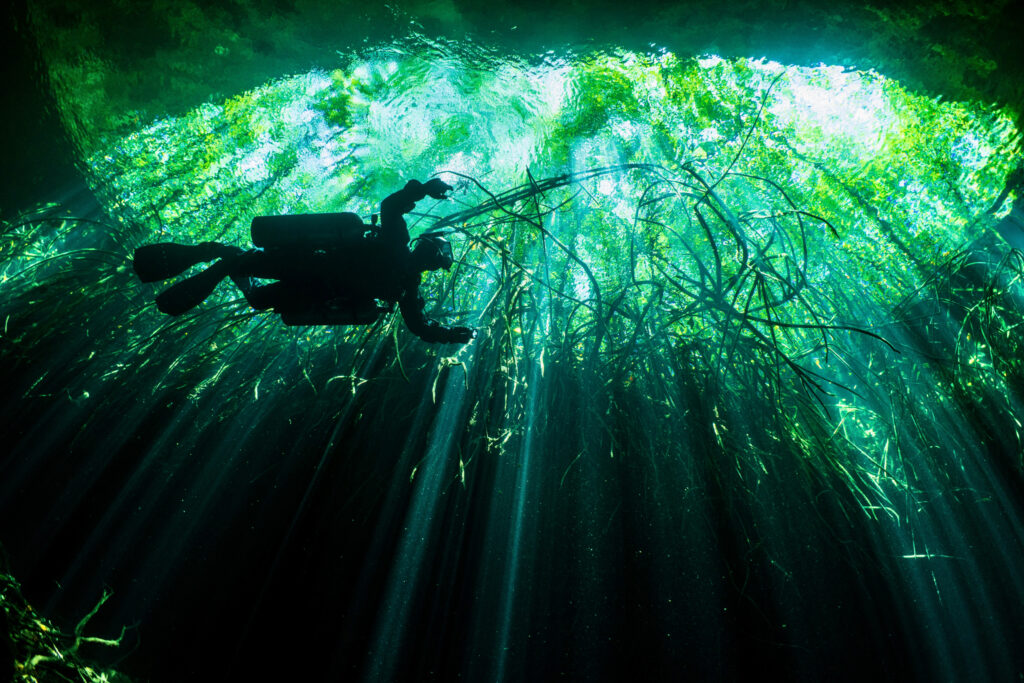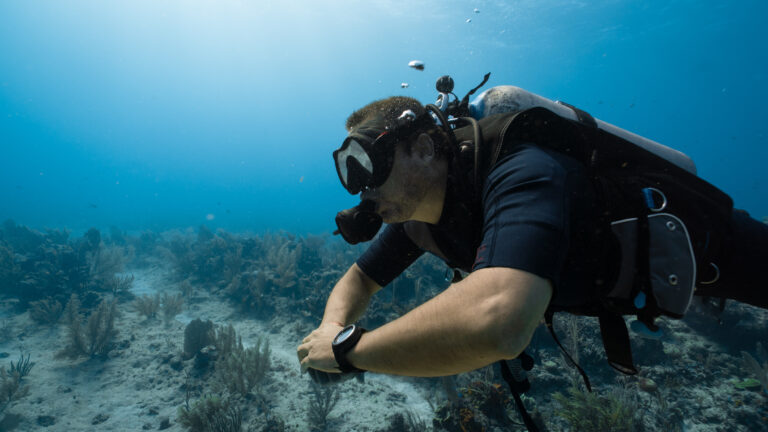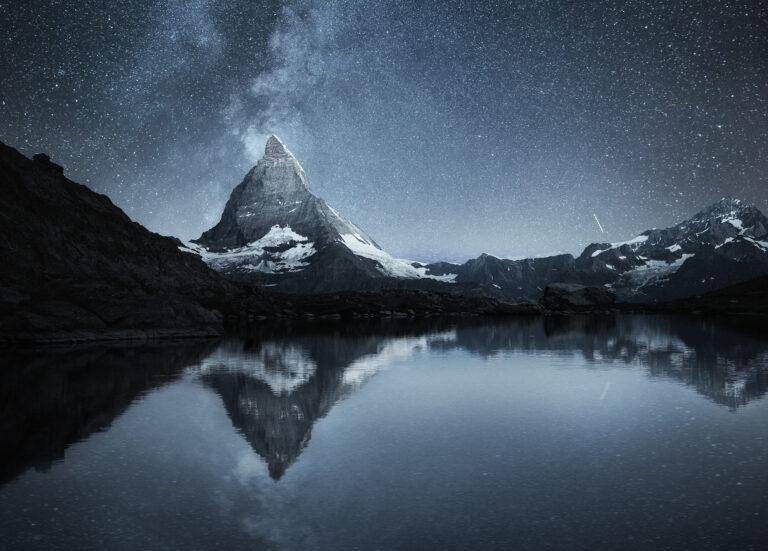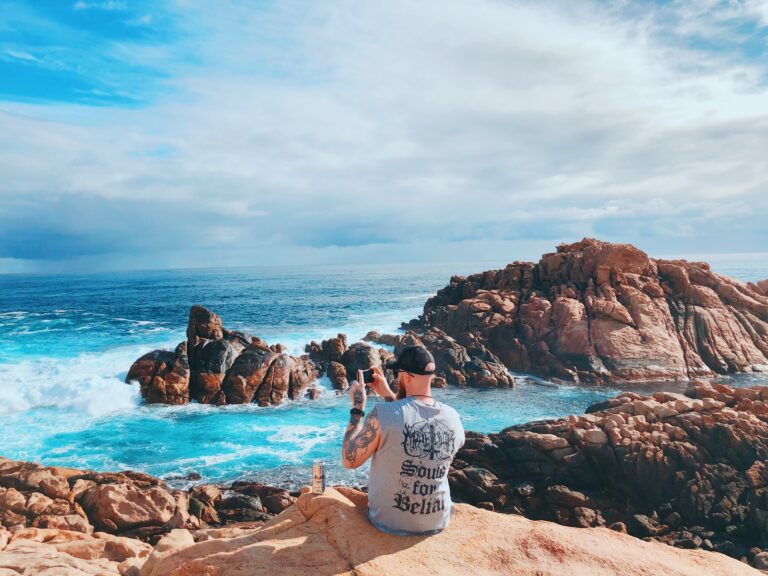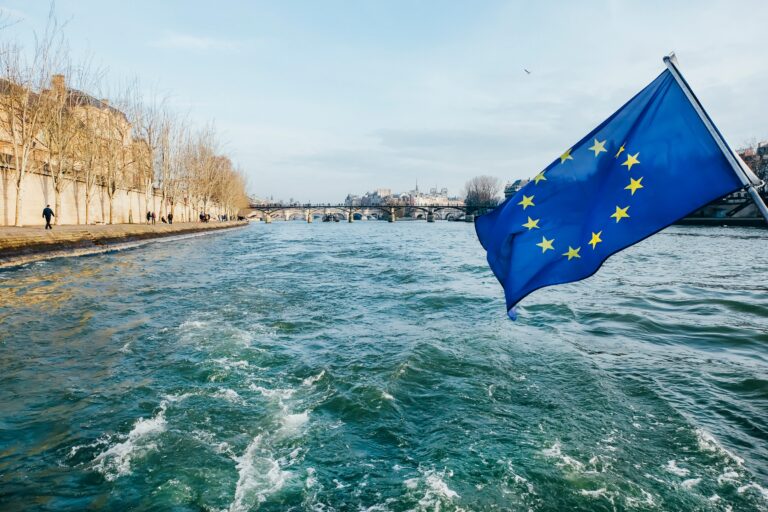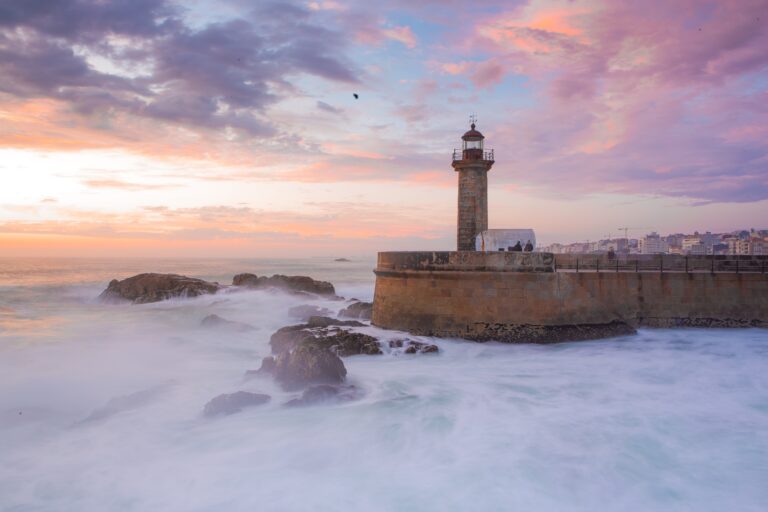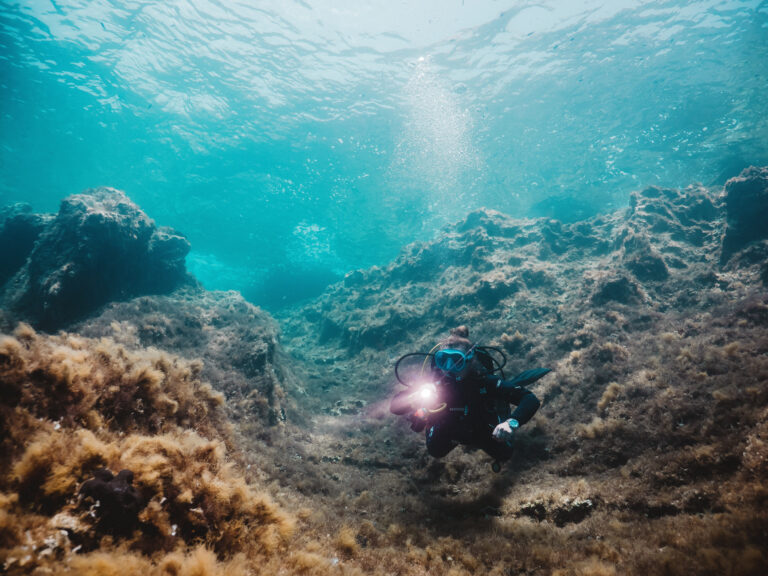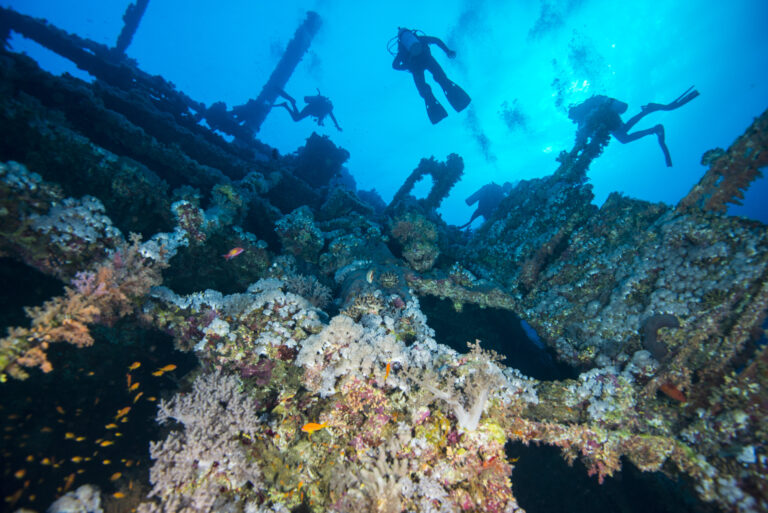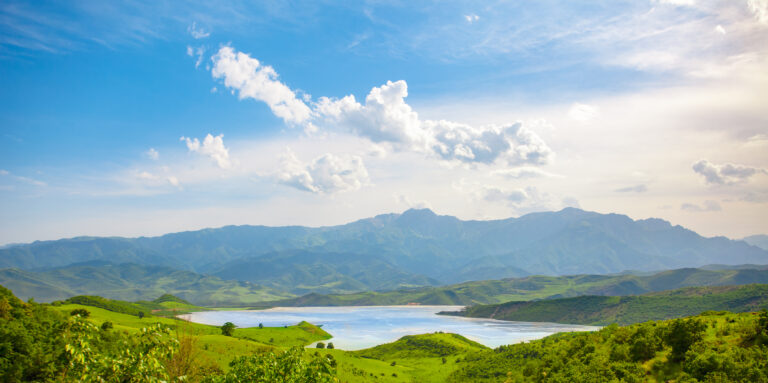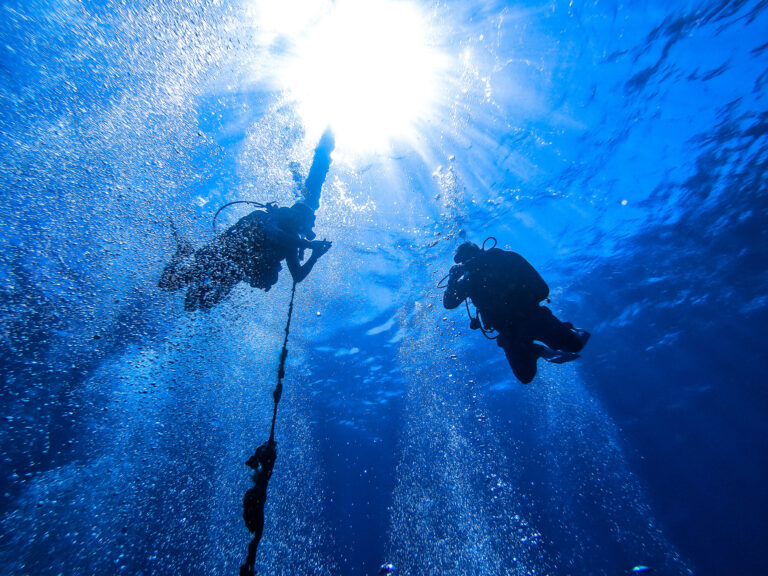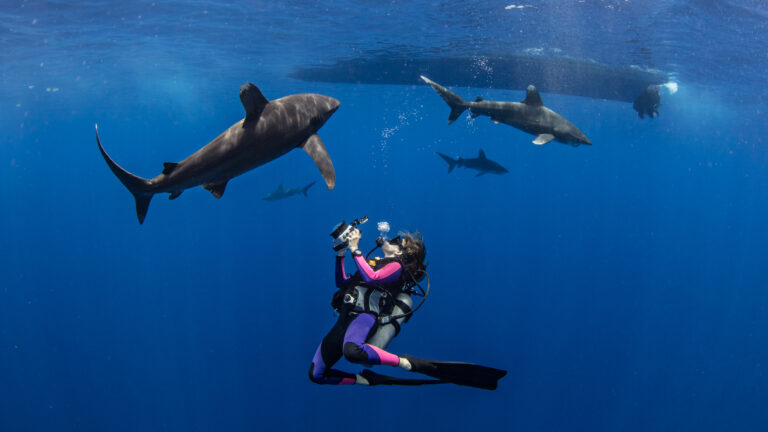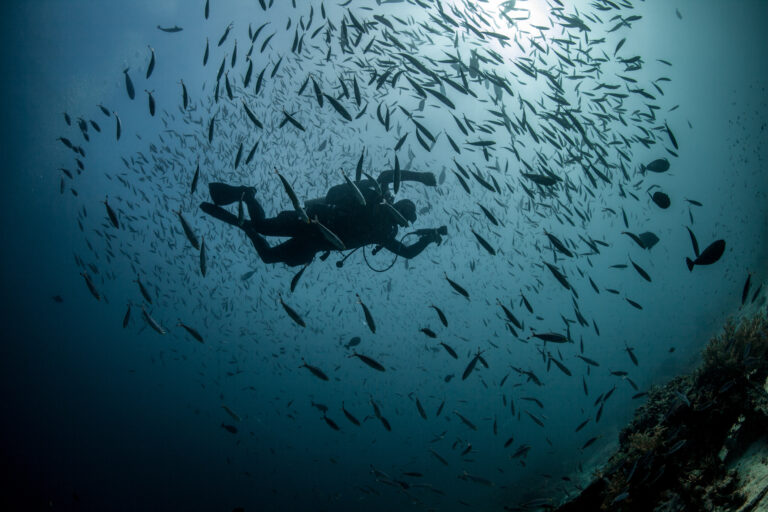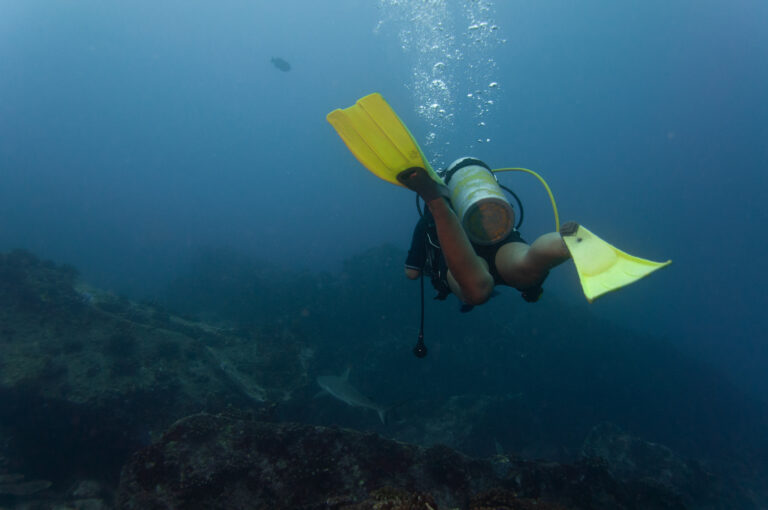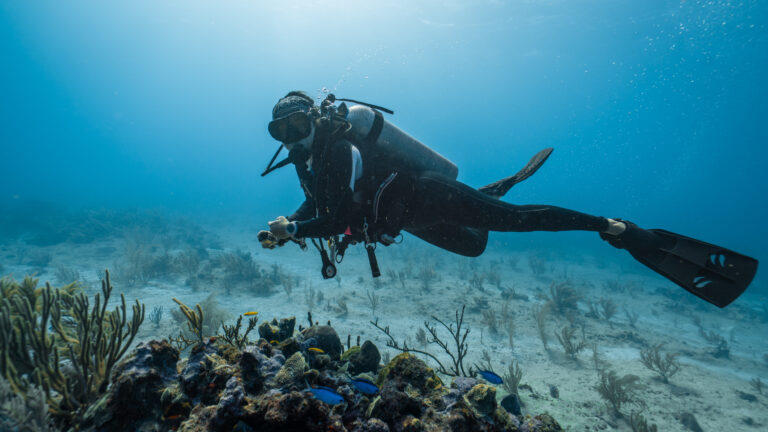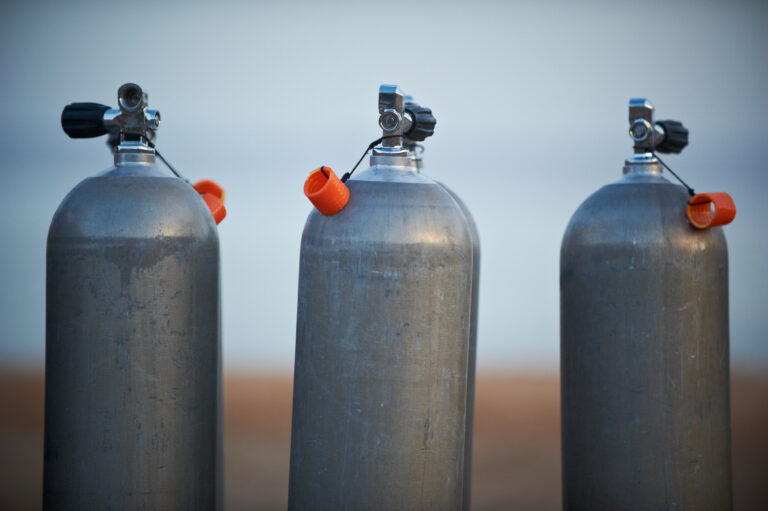SCUBA DIVERS’ TRAVEL GUIDE TO Czechia
Czechia may not be the first destination that comes to mind when you think of scuba diving, but this landlocked country in Central Europe has plenty to offer for adventurous divers. From flooded quarries and lakes to underground caves and rivers, Czechia boasts a variety of dive sites that will challenge and delight you. You can explore the submerged remains of a medieval village, marvel at the crystal-clear waters of a former silver mine, or discover the secrets of a mysterious labyrinth. Whether you are a beginner or an expert, you will find something to suit your level and interest in Czechia. Come and dive into the hidden wonders of this fascinating country!
LOCATION AND GEOGRAPHY
Czechia, a landlocked country in Central Europe, may not be the first destination that comes to mind for scuba diving enthusiasts, yet it offers a unique underwater experience far from the ocean’s embrace. The country’s diverse landscape is dotted with natural and artificial lakes, flooded quarries, and reservoirs that have become havens for freshwater diving. The most renowned diving spots are found in the Czech Republic’s northern region, such as the Hracholusky and Jesenice Dam in the Plzeň Region, and the flooded limestone quarry of Velká Amerika near Prague, often referred to as the “Czech Grand Canyon.” These inland waters, with their surprisingly clear visibility, reveal a different kind of aquatic world where divers can explore submerged forests, rock formations, and an array of freshwater life. The geography of Czechia, with its rolling hills and historical quarries, has inadvertently created a distinctive and unexpected scuba diving locale that beckons those looking to plunge into the tranquil freshwater depths of Central Europe.
VISA AND ENTRY REQUIREMENTS
Czechia, also known as the Czech Republic, is a landlocked country in Central Europe, and while it may not be the first destination that comes to mind for scuba diving, it offers unique freshwater diving experiences in quarries, lakes, and flooded limestone caves. As a member of the European Union and the Schengen Area, Czechia allows visa-free entry to EU/EEA citizens who can stay for an unlimited period. Travelers from other Schengen countries can also enter without border checks. Visitors from the United States, Canada, Australia, and several other countries can enter Czechia without a visa for short stays of up to 90 days within a 180-day period for tourism purposes, which includes scuba diving. However, it’s essential to have a passport valid for at least three months beyond your planned departure date from the Schengen Area. Nationals from countries that do not have a visa exemption agreement with the Schengen states will need to apply for a Schengen visa prior to arrival. All visitors should check the latest visa and entry requirements before planning their trip, as regulations can change and may have been affected by the COVID-19 pandemic.
GETTING TO Czechia
Getting to the landlocked Czechia (Czech Republic) for a scuba diving adventure is a journey that begins with an international flight to its capital, Prague, which hosts the primary international airport, Václav Havel Airport Prague (PRG). Major airlines from around the globe offer direct and connecting flights to this central European hub, making it accessible from virtually any starting point. Once in Prague, divers can rent a car or use the country’s efficient public transportation system, which includes trains and buses, to reach diving destinations such as flooded quarries and lakes. Notably, the freshwater diving site in the quarry of Hracholusky Lake or the clear waters of the flooded Lomeček quarry near the town of Kostelec nad Orlicí are within a few hours’ drive from Prague. While Czechia may not offer the typical tropical dive experience, its unique inland dive sites provide a different kind of underwater exploration, featuring submerged forests, rock formations, and a variety of freshwater marine life.
BEST TIME TO DIVE
The landlocked nature of Czechia might not suggest prime scuba diving opportunities at first glance, yet this Central European country offers a unique underwater experience for those willing to explore its freshwater locales. The best time to scuba dive in Czechia is during the late spring through early autumn months, from May to September, when the weather is warm and the visibility in lakes and quarries is at its peak. During this period, the water temperatures are more comfortable, ranging from 10°C to 20°C (50°F to 68°F), and the aquatic life is most active. Divers can enjoy the clear waters of well-known sites like the flooded quarry of Hracholusky or the lake of Lomeček, which are popular for their underwater attractions, including submerged trees, rock formations, and even intentionally sunken objects for exploration. It’s important to note that while summer offers the best conditions, Czech diving sites can be dived year-round, with the winter months offering a different kind of serene, albeit colder, experience for those equipped with drysuits and a taste for adventure beneath the ice.
ACCOMMODATION OPTIONS
In the landlocked country of Czechia, scuba diving enthusiasts might be surprised to find a variety of accommodation options catering to their unique needs, particularly near diving hotspots such as the flooded limestone quarry in Hranice, or the clear waters of the Lomeček quarry near Prague. While Czechia may not offer the beachfront resorts typically associated with scuba diving, divers can still find comfortable lodgings in the form of local guesthouses, boutique hotels, and even countryside cottages that often provide gear storage and drying areas. In the vicinity of popular dive sites, some accommodations have tailored their services to divers, offering information on local dive centers and filling stations, as well as arranging transportation to and from the dive sites. For a more immersive experience, divers can opt for dive camps or retreats, which sometimes include meals and the camaraderie of fellow diving enthusiasts. Whether you’re looking for a rustic stay in a traditional Czech pension or a more upscale hotel with modern amenities, Czechia’s accommodation options ensure that divers can rest and recharge comfortably after exploring the country’s unique underwater landscapes.
DIVE OPERATORS AND DIVE SHOPS
In the landlocked heart of Europe, Czechia (the Czech Republic) may not be the first destination that springs to mind for scuba diving, yet it offers a unique underwater experience for those willing to explore its freshwater sites. Dive operators and shops in Czechia are well-equipped to cater to divers of all levels, providing gear rentals, certification courses, and guided dives. The most notable dive sites are found in flooded quarries, such as the popular Hranice Abyss, which is the deepest flooded freshwater abyss in the world, and the clear waters of Lomeček quarry or the atmospheric Jesenice. These inland dive spots are characterized by cool water temperatures, good visibility, and an array of freshwater fauna. Czech dive shops typically offer a range of PADI and CMAS courses, and because of the inland nature of diving, many also specialize in technical diving and cave diving certifications. Divers can expect a friendly and knowledgeable service, with dive operators often organizing social events and group trips to foster a sense of community and share the unique diving experiences that Czechia has to offer.
TRANSPORTATION WITHIN Czechia
While Czechia may not be the first destination that comes to mind for scuba diving, it offers unique freshwater diving experiences in its quarries, rivers, and reservoirs. As a landlocked country, transportation within Czechia is convenient and efficient, making access to dive sites straightforward. The country boasts an extensive public transportation network, including buses and trains that connect major cities with smaller towns. For scuba divers looking to reach more remote or specific dive locations, such as the flooded limestone quarry in Hracholusky or the popular diving spot in the Vranov Reservoir, renting a car is the most practical option. Car rentals are available at airports and in major cities, providing flexibility to explore at your own pace. Additionally, some dive centers in Czechia may offer their own transport services or arrange shuttle services for divers, ensuring that even the most hidden underwater treasures are within reach. Always remember to check if your equipment can be accommodated by your chosen mode of transport and plan accordingly to ensure a smooth journey to your underwater adventure.
CURRENCY AND PAYMENT METHODS
When traveling to Czechia for scuba diving adventures, it’s important to note that the official currency is the Czech koruna (CZK). While some dive shops, especially in tourist-heavy areas like Prague, may accept Euros, it’s advisable to have korunas on hand for most transactions. Credit cards are widely accepted in urban centers and at major dive centers, but it’s prudent to carry cash for purchases in smaller towns or from local vendors near dive sites. ATMs are readily available, particularly in cities and larger towns. However, when venturing into more remote diving locations, ensure you have enough cash as ATM access may be limited. It’s also worth checking with your dive operator ahead of time to confirm acceptable payment methods for services like equipment rental, guided dives, and any necessary permits. Keep in mind that tipping is appreciated for good service, and while not mandatory, it is customary to round up or leave a 5-10% gratuity.
LANGUAGE AND COMMUNICATION
While the Czech Republic, known locally as Česká republika or Czechia, may not be the first destination that comes to mind for scuba diving, it offers unique freshwater diving experiences in quarries, lakes, and flooded mines. When diving in Czechia, it’s important to note that the primary language spoken is Czech. Although English proficiency among the younger population and within the diving community is relatively common, it is advisable to learn a few basic Czech phrases for courtesy and to facilitate smoother interactions with local dive operators and residents. Dive briefings may be conducted in Czech or English, depending on the composition of the group. It’s essential to have a clear understanding of dive signals and to establish communication protocols with your dive buddy and guide before submerging, as underwater hand signals are the universal language among divers and ensure safety and coordination during the dive.
LOCAL CULTURE AND ATTRACTIONS
While Czechia, also known as the Czech Republic, may not be the first destination that comes to mind for scuba diving due to its landlocked geography, it offers a unique underwater experience that is deeply intertwined with its rich local culture and attractions. The freshwater lakes and flooded quarries, such as the popular Lomeček quarry or the Hracholusky Dam, provide divers with the opportunity to explore submerged historical artifacts, including old village remnants and sculptures that create an underwater gallery reflecting Czech folklore. Above the surface, the country’s storied past is evident in its magnificent castles, such as the gothic Karlštejn Castle and the picturesque Český Krumlov, both of which are a short trip from popular dive sites. Divers can immerse themselves in the local culture by enjoying traditional Czech cuisine, like hearty goulash and dumplings, or by savoring the world-renowned Czech beers in a local tavern. The combination of diving adventures with the exploration of historical towns, vibrant cultural festivals, and the warm hospitality of the Czech people makes for an unexpectedly rich and diverse scuba diving trip.
CULTURAL ETIQUETTE AND TIPS
When scuba diving in Czechia, a landlocked country with a rich history and cultural tapestry, it’s important to approach the activity with respect for local customs and etiquette. Czechs are known for their love of nature and outdoor activities, and this extends to the care they take of their freshwater lakes and quarries, which are often the sites for diving. As a visitor, always ensure you respect the environment by not disturbing the aquatic life or littering. It’s customary to greet with a firm handshake and maintain direct eye contact, which is a sign of trustworthiness. When engaging with dive operators or local guides, punctuality is valued, and a polite “dobrý den” (good day) goes a long way. Tipping is not mandatory but is appreciated for exceptional service, with 10% being standard. Lastly, while Czechs may initially appear reserved, they are generally friendly and helpful once engaged in conversation, so don’t hesitate to ask for local diving tips or recommendations for post-dive refreshments, such as the renowned Czech beer, to enjoy responsibly after your dive.
LOCAL LAWS AND REGULATIONS RELEVANT TO TOURISTS
When planning a scuba diving trip to Czechia, it’s essential to familiarize yourself with the local laws and regulations to ensure a safe and lawful experience. Czechia is a landlocked country, so diving is predominantly in lakes, quarries, and rivers, each with specific rules. Divers must adhere to the Czech Diving Association (ČPSA) standards or equivalent international certifications. It’s mandatory to carry proof of certification and dive insurance. Diving in protected natural areas requires a permit, and touching or removing wildlife or artifacts is strictly prohibited. Visibility in freshwater sites can vary, and some may have restricted access during certain times of the year to protect local ecosystems. Always check for site-specific regulations, such as depth limits and mandatory guide requirements. Additionally, it’s important to note that alcohol consumption before diving is illegal, and random checks are possible. By respecting these regulations, divers can enjoy the unique underwater landscapes Czechia offers while preserving its natural beauty for future visitors.
SAFETY TIPS AND EMERGENCY CONTACTS
When diving in Czechia, safety should be your paramount concern. Always ensure that your equipment is in excellent condition and that you are diving within the limits of your certification and experience. Due to the inland nature of diving in Czechia, with popular sites like flooded quarries and lakes, it’s essential to be prepared for colder water temperatures and lower visibility than in open sea diving. Always have a dive buddy and maintain clear communication throughout your dive. Before embarking on your underwater adventure, familiarize yourself with the local emergency procedures and have the contact information for the nearest hyperbaric chamber, which in Czechia is typically associated with hospitals in larger cities such as Prague. It is also advisable to carry a means of signaling for help, such as a whistle or surface marker buoy. Ensure that you have the local emergency numbers, including the universal European emergency number 112, programmed into your phone. Lastly, consider investing in dive insurance that covers hyperbaric treatment and emergency transport, as these can be costly and are not always covered by standard travel insurance policies.
HEALTH AND TRAVEL INSURANCE
When planning a scuba diving trip to Czechia, it’s crucial to consider your health and travel insurance coverage. While Czechia may not be the first destination that comes to mind for underwater exploration, its freshwater quarries and lakes, such as the popular Hracholusky Dam or the flooded quarry in Hranice, offer unique diving experiences. However, diving in these inland waters can come with its own set of risks, such as cold temperatures and low visibility. Therefore, ensure that your travel insurance policy includes comprehensive medical coverage that specifically covers scuba diving activities. Check that it also provides for hyperbaric treatment in case of decompression sickness, which is essential for any diver. Additionally, since Czechia is a landlocked country, you may need to be transported to a neighboring country for specialized treatment, so make sure your policy covers medical evacuation and repatriation. Always carry proof of your insurance and emergency contact numbers with you. Remember, while the Czech healthcare system is robust, without appropriate insurance, you could face significant out-of-pocket expenses in the event of an accident or illness. It’s better to dive with peace of mind, knowing you’re fully covered for any underwater adventure that awaits in the enchanting waters of Czechia.

